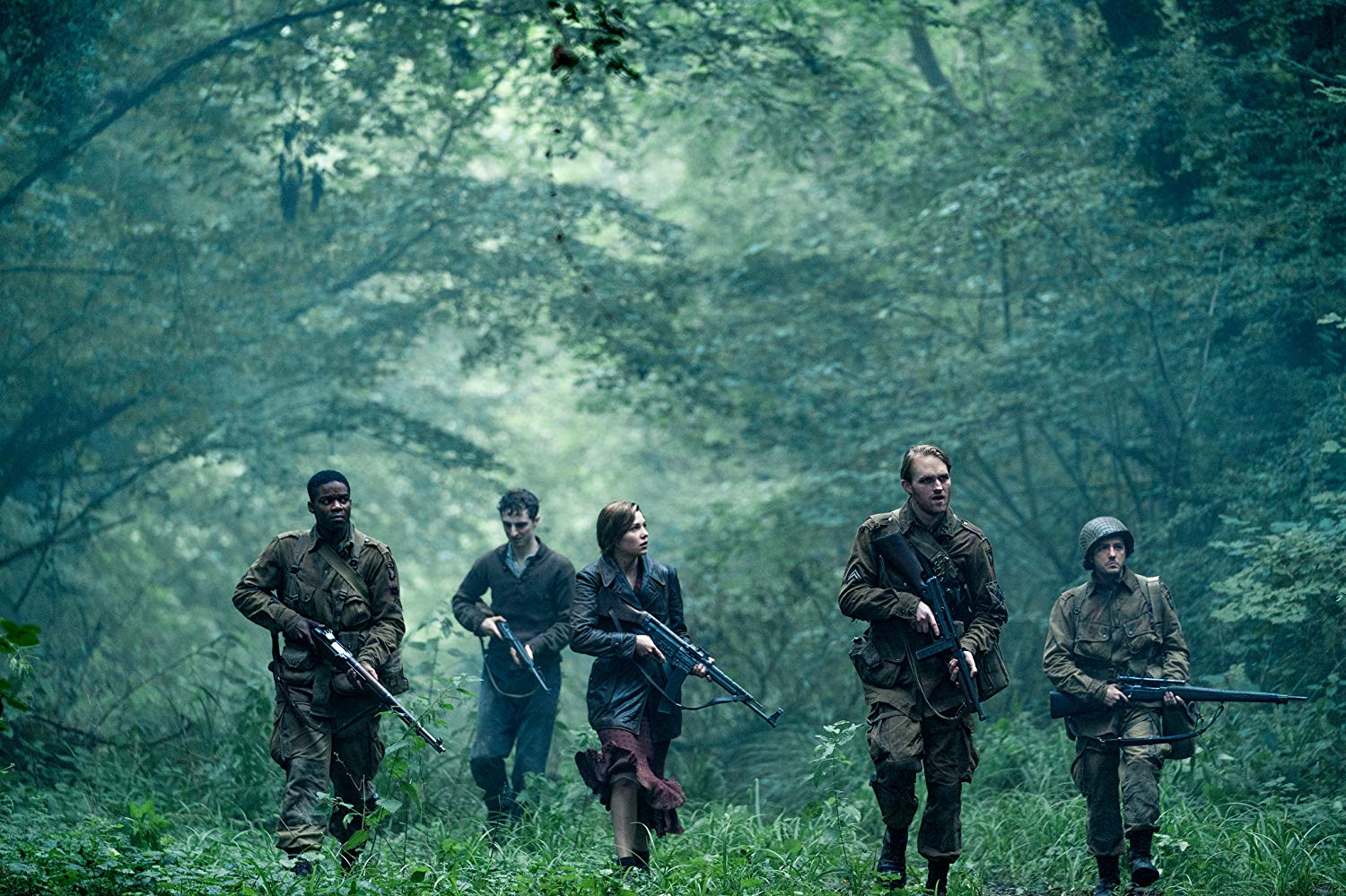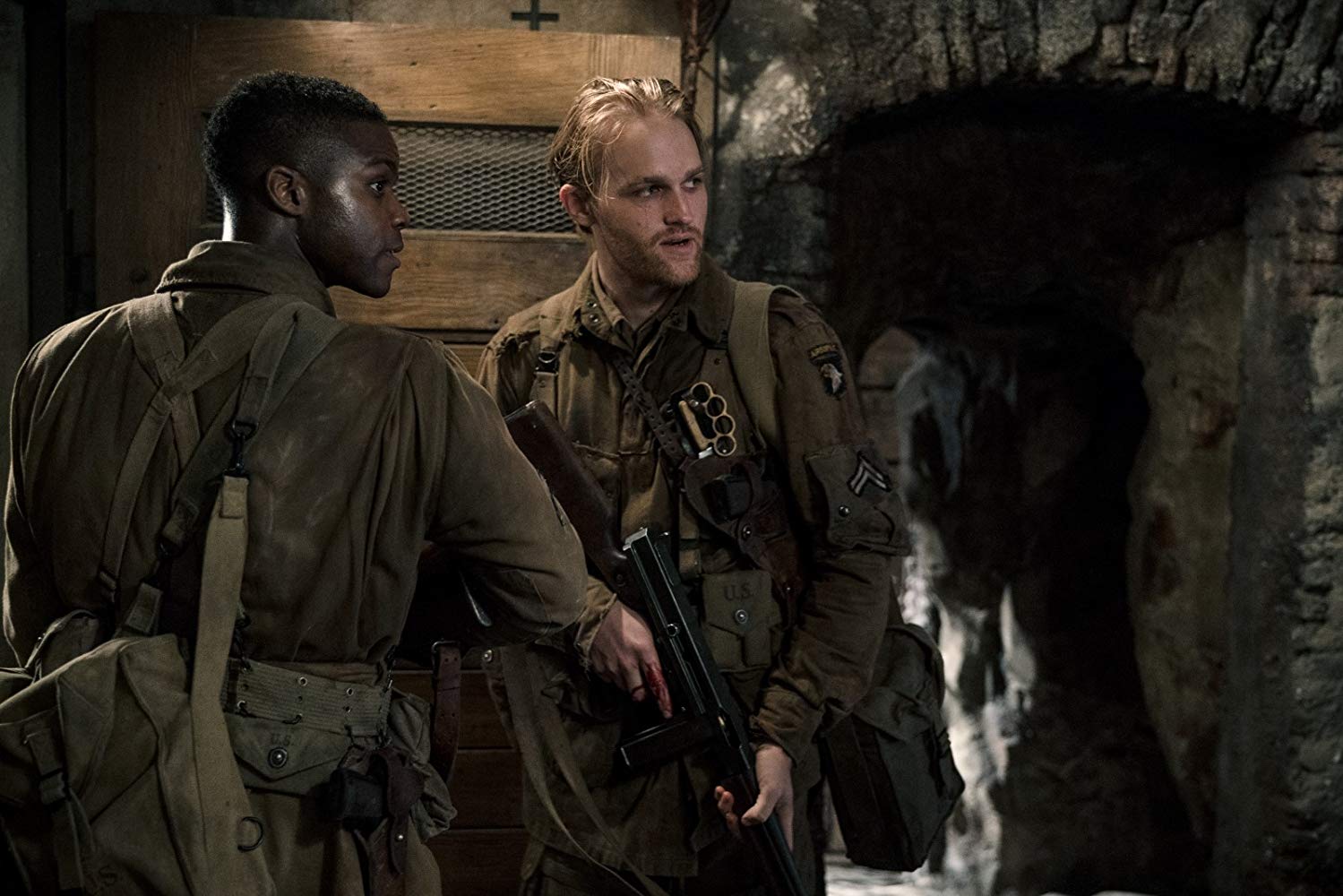At Fantastic Fest 2018, the premiere of Overlord, produced by none other than J.J. Abrams, gave rise to persistent speculations regarding its potential connection to the Cloverfield franchise. Abrams unequivocally refuted all alleged ties, insisting that the film was nothing more than a tale of Nazi zombies. J.J. Abrams, a producer whose work I’ve closely followed and deeply respected. However, he grapples with a recurring issue: his knack for conceiving brilliant ideas often outpaces his ability to see them through to fruition. It’s a well-established fact that not every promising concept translates into a remarkable film. So, as I entered the cinema, I harbored reservations about encountering yet another project that might fall short of its potential. Yet, Overlord emerged as one of the most audacious films I’ve witnessed this year. Despite J.J. Abrams’ occasional struggles with tying together his ideas while seated in the director’s chair, he has delivered a highly successful project in his capacity as a producer.
To briefly touch upon the plot… American aircraft are soaring through the skies over France during World War II. Soldiers tasked with reaching a church to disable its communication channel—by blowing it up—find themselves stranded in a village infested with Nazis after their planes are shot down. American soldiers attempting to gain access to the radio system stumble upon something beyond their mission’s scope: a clandestine Nazi experiment.

In his second feature film following Son of a Gun, Director Julius Avery meticulously crafts Overlord down to the finest detail, resulting in a triumphant Hollywood popcorn flick. From the cinematography to the performances, from the makeup to the effects, every aspect of Overlord is impeccably executed, offering a particularly enthralling experience through its sound effects. While not entirely representative of the film as a whole, the opening 15 minutes deliver an intense wave of suspense that will leave you riveted to your seat. The sound design, especially, is potent, allowing you to feel the soldiers’ fear deep in your bones, particularly when experienced on the grand canvas of a cinema screen. The film’s soundtrack album, in particular, is nothing short of magnificent.
The experiments purportedly conducted by the Nazis during Hitler’s era, or those claimed to have been undertaken, have become a veritable cash cow for Hollywood cinema. Encountering an entirely different experiment in a remote corner of Europe, American soldiers spare no effort to thwart the Nazis’ aberrations. However, the aspect of the experiment itself is undeniably chilling. I would have preferred a more comprehensive exploration of the experiment, but the film refrains from incessantly pounding the viewer with suspense elements, instead distributing action throughout. In this film, where excitement never wanes for even a moment, you remain on the edge of your seat until the final second.

Pilou Asbæk, whom we may recall from Game of Thrones, leaves an indelible mark on the film with his portrayal of the Nazi commander. Screenwriters Billy Ray and Mark L. Smith exhibit remarkable skill in character development. Every character in the film is brilliantly crafted. Alongside Pilou Asbæk, Jovan Adepo and Wyatt Russell, who portray American soldiers, also deliver exceptional performances. If you have an inclination toward fantasy productions, Overlord offers a complete whirlwind of entertainment and suspense in every detail.
In summary… Overlord, narrating a fictional Nazi experiment, is a technical popcorn film. It grabs attention by maintaining a balance without going overboard in its storytelling. The film stays within the bounds of logic, refraining from gratuitous exaggeration in the narrative. Especially with its sound effects, the film manages to impress, and its makeup work is also of exceptional craftsmanship. If you seek amusement and wish to experience suspense down to your very core, I highly recommend Overlord.
